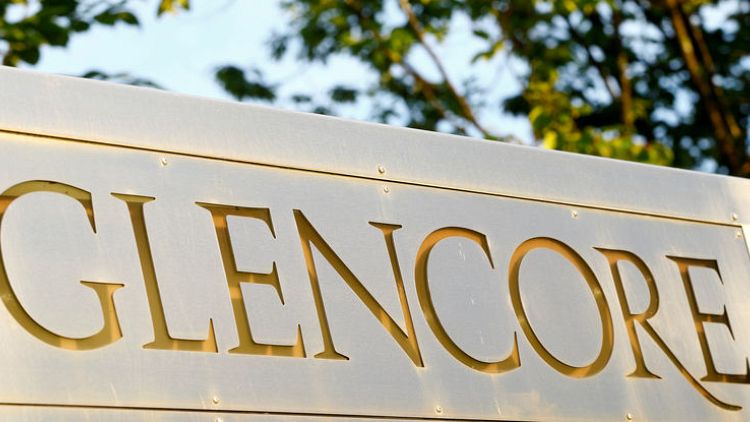By Pratima Desai
LONDON (Reuters) - Mining giant Glencore has bought 200,000 tonnes of aluminium on the London Metal Exchange and will take delivery of the metal from warehouses owned by ISTIM UK in Port Klang, Malaysia, five sources familiar with the matter said.
Glencore wants the aluminium for delivery to clients but sources said the move was also a direct challenge to ISTIM, which is preventing companies from taking LME warranted metal when needed from its warehouses in Port Klang.
Cancelled aluminium - material earmarked for delivery - in ISTIM's Port Klang warehouses stood at 309,800 tonnes at the end of January, up from 30,000 tonnes at the end of December.
Commodity trader Glencore is a major player in the aluminium market outside China, though it doesn't produce any itself.
Sources said Glencore bought more than 1 million tonnes from Russia's Rusal last year and takes the bulk of production from Century Aluminium, in which Glencore has a more than 40 percent stake. Century's output in 2017 was more than 740,000 tonnes.
Glencore's agreements to buy aluminium from smelters around the world would take its total to about 3 million tonnes, sources say. That is about 10 percent of supply outside China, which accounts for 56 percent of the total at 65 million tonnes.
Glencore, Rusal and ISTIM declined to comment. Century Aluminium did not immediately reply to requests for comment.
"They've (Glencore) cancelled 200,000 tonnes in Port Klang. It's moving out slowly and unlikely to go back into the LME system," one aluminium industry source said, adding that the impact of Glencore's purchase could be seen in higher physical premiums.
Premiums are a reference to the extra paid for metal in the physical market over and above the benchmark LME aluminium price at around $1,860 a tonne.
European premiums on COMEX have risen to $78 a tonne, the highest since October and compared with $60 at the start of January. Traders said some physical sellers were achieving $100 a tonne or more.
Premiums came under pressure at the start of the year on expectations that large amounts of aluminium would come flooding into Europe after the United States lifted sanctions on Rusal. But that hasn't happened yet.
Glencore was buying aluminium from Rusal under a seven-year contract to purchase 14.5 million tonnes from 2012.
"That contract ended last year. Glencore will for now buy aluminium from Rusal on a quarterly basis," an aluminium trader said.
"There is a lot of aluminium in LME warehouses in Malaysia, and Port Klang is one of the cheapest places to store metal."
Metal entering the LME's global warehouse storage network is issued with a title document called a warrant. The latest data shows more than 613,000 tonnes of aluminium on LME warrant out of a total above 1.26 million tonnes is in Port Klang.
Glencore-owned Access World, with warehouses in Port Klang, is a likely destination for the cancelled metal, but it could also move to different locations or other warehouse firms, sources said.
"Some of that metal will move across the road," an aluminium industry source said, adding that price differentials for contracts along the maturity curve were an incentive for Glencore to buy now and sell forward.
For example, a healthy profit can be made by buying the three-month contract and selling the December contract for a premium of $60 a tonne so long as financing and off-warrant rental costs are lower.
Storing metal off warrant costs about 10 cents a tonne a day, sometimes less, a fraction of the more than 50 cents for aluminium on LME warrant in many LME locations.
(Reporting by Pratima Desai; additional reporting by Polina Devitt; editing by Veronica Brown and Dale Hudson)



